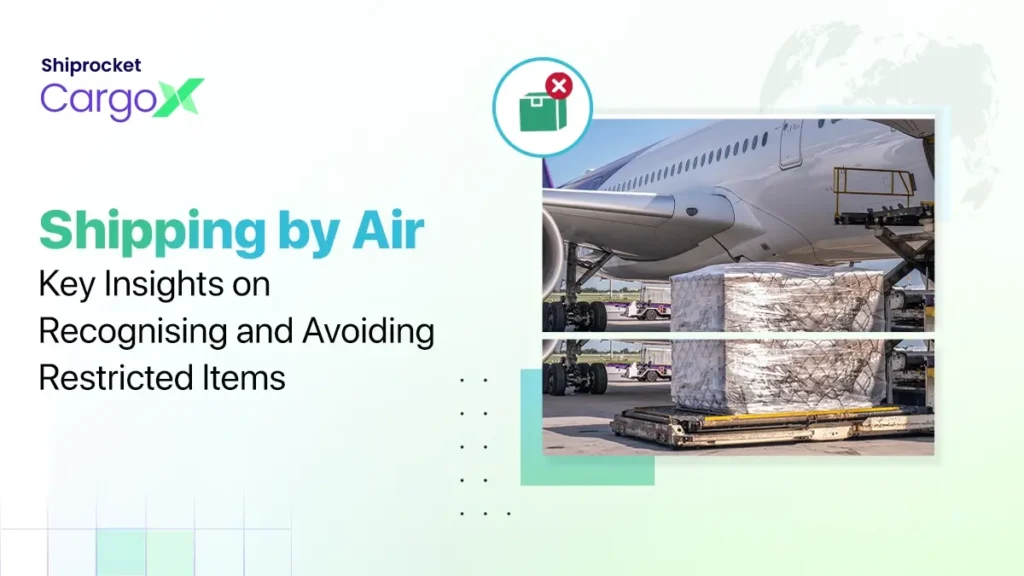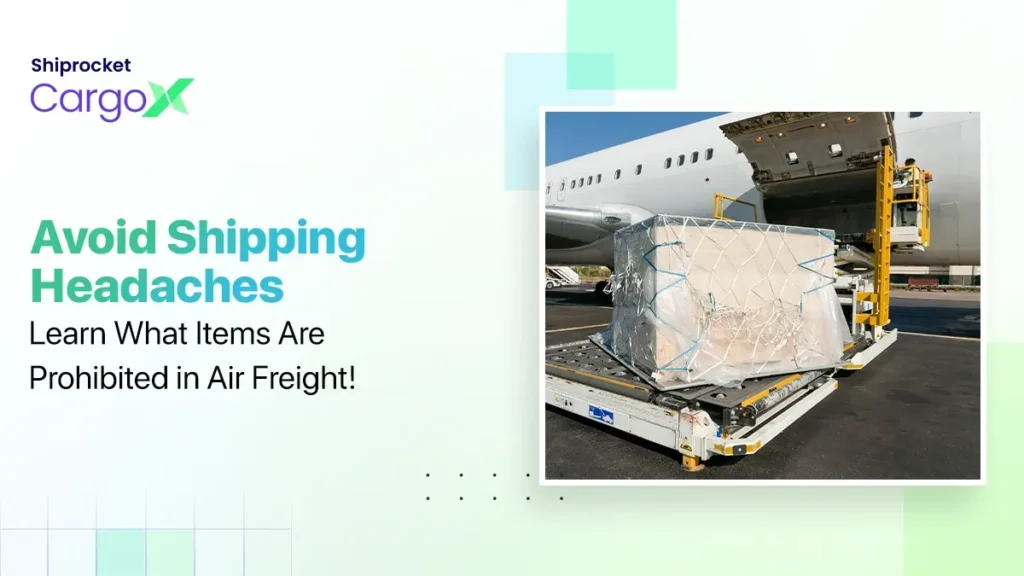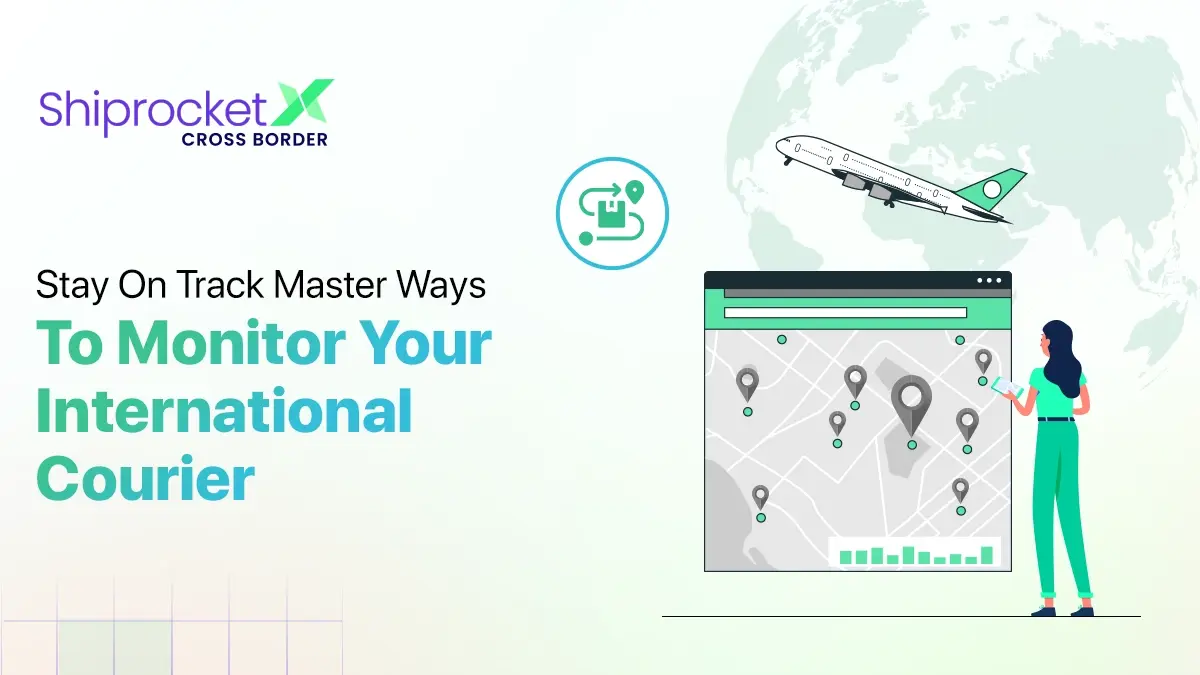Air Cargo Restricted Items: What to Avoid for Air Freight
Air freight is vital to global commerce, enabling businesses to reach customers worldwide quickly. However, shipping items by air comes with specific challenges, especially regarding what can and cannot be sent. Many products are considered either prohibited or restricted. Prohibited items are entirely banned from air transport, while air cargo restricted items may be shipped under certain conditions and regulations.
For e-commerce businesses, the convenience of selling products online comes with the added complexity of navigating international shipping requirements. Each country has its own set of rules regarding restricted and prohibited items, making it essential for you and courier services to stay informed. Failure to follow these rules can lead to delays, fines, or legal action.
Verifying your items’ status before sending them is crucial to ensuring a smooth shipping experience. Not knowing can lead to significant complications, impacting your business reputation and customer satisfaction. This guide will explore the list of restricted and prohibited items, how to identify them, and the penalties for non-compliance.

Understanding Restricted Air Freight Items
When shipping goods internationally, it’s crucial to recognise which items are restricted. These restrictions vary based on the carrier, customs requirements, and distribution channel. However, the rules vary between countries. For instance, some nations permit consumers to import restricted products for personal use if the quantity is limited and the items aren’t meant for resale.
Air cargo restricted items can include a wide range of products. Common reasons for restrictions include the item’s packaging, volume, labelling, and nature. In shipping, “restricted” indicates that an item is allowed only under specific conditions.
Types of Restrictions
In shipping, “restricted” can mean two things:
- Quantity Limits: Some items are permitted but only in small amounts. For example, personal use exemptions may apply, allowing consumers to import limited quantities for personal consumption without the intent to resell.
- Criteria for Shipping: Other items may be allowed but must meet specific criteria. For instance, batteries have strict guidelines, such as not being connected to any electronic device and not exceeding certain limits.
Some product categories often involve additional import requirements for businesses, especially direct-to-consumer brands. Vitamins and supplements, cosmetics, and food items are notable examples. The specific ingredients and formulations often dictate whether an item can be imported or if an import permit is necessary.
Restricted Items
Some of the most common air cargo restricted items are:
- Alcoholic Beverages: These can be sent but usually require special permits, depending on the country.
- Tobacco Products: Regulations vary widely, and many places restrict tobacco shipping to specific amounts.
- Dangerous Goods: Items like flammable products—perfume and nail polish—are classified as dangerous goods and often cannot be transported on passenger flights.
- Plants and Seeds: These require specific import permits due to the potential for pests and diseases.
- Food Products: Various foods face restrictions based on ingredients and safety regulations.
- Batteries: Specific types, like car batteries, are prohibited. Lithium-ion batteries can be shipped only if they are not connected to any electronic device.
Why Do Restrictions Exist?
Restrictions aim to ensure safety and compliance with international laws. They help prevent hazards such as fires, damage to packages, or health risks. Each courier company sets its guidelines, so checking their rules before booking shipments is essential.
Shipping companies may allow certain items under contract for regular shippers who can adhere to all relevant laws. For instance:
- Animal Products: Non-domesticated goods such as certain leather items.
- Ammunition: Must meet strict requirements outlined in their service terms.
- Biological Substances: Including certain specimens that comply with regulations.
As an international seller, you must be aware of restricted air freight items. Compliance with regulations ensures smooth transportation and avoids potential legal issues.
What Items Are Prohibited in Air Freight?

Prohibited items typically fall into dangerous, perishable, or illegal materials. Understanding what items are banned helps ensure safe transport and compliance with regulations.
Prohibited Items
These are some of the prohibited items from air freight that may be shipped via sea:
- Flammable Liquids and Solids: These pose a significant fire risk during air transport. Common examples include gasoline, kerosene, and propane. Proper packaging and labelling are essential to prevent ignition and ensure safety.
- Radioactive Materials: Regulated under strict national and international laws, radioactive materials are dangerous due to their harmful radiation. Examples include uranium and plutonium. Radioactive materials can be shipped in three types of special packaging: Type A, Type B, and Type C, with Type A being the most secure.
- Corrosive Materials: Corrosive substances, such as acids and mercury, can cause severe harm to the skin and respiratory systems. Safely handling these materials is critical to avoid injury and property damage.
- Poisonous and Infectious Substances: Items that can cause serious health risks are also prohibited. This includes bacteria and viruses, which can lead to illness or death. Proper handling and labelling are crucial to mitigate risks associated with these substances.
- Compressed Gases: These are highly flammable and can explode if mishandled. Common examples include oxygen and methane. These gases require careful packaging to prevent leaks and potential explosions during transport.
- Magnetised Materials: These items can interfere with aircraft operations. If not secured, they can fall and pose safety risks. Adequate storage and handling rules are necessary to avoid disrupting flight operations.
- Strong Acids: They can corrode materials and cause severe burns. Examples include hydrochloric acid and sulfuric acid. Using durable containers and clearly labelling them can prevent leaks and ensure safe handling.
- Firearms and Ammunition: Shipping firearms and ammunition involves strict regulations. Specific packaging, labelling, and compliance with destination laws are necessary to ensure safe transport. Failure to follow these mandates can lead to severe penalties.
Apart from the items listed above, there are other categories of goods that are prohibited from air freight. These include:
- Live Animals: Transporting live animals is heavily regulated and often restricted.
- Human Remains: Shipping human remains must adhere to specific regulations.
- Hazardous Waste: Any type of hazardous waste is banned due to its potential dangers.
Safety Measures in Air Cargo
Airlines implement strict safety measures to manage the risks associated with prohibited items. Each shipment undergoes thorough safety risk management assessments that consider the following:
- Cargo supply chain and acceptance protocols
- Inherent hazardous properties of items
- Proper cargo loading procedures
- Staff training and adherence to guidelines
These measures aim to prevent accidents and assure compliance with aviation safety regulations.
How to Determine If an Item Is Restricted or Prohibited
Contact the transportation company or airline directly to determine if an item is restricted or prohibited. They can provide clear guidance on whether your item is allowed. If you can’t reach them, check their official website, which often lists prohibited items.
If the website doesn’t have the information you need, consider consulting the relevant government agency that oversees the transportation sector. These agencies usually provide detailed lists and regulations to help you decide if the item is allowed.
Direct communication is critical to ensuring you’re aware of any restrictions before transporting your item. Always take the time to verify these details to avoid complications later on.
Penalties for Transporting Restricted Items
Penalties are stated to ensure compliance with regulations and protect air travel safety. Here’s a look at the potential consequences shippers face.
- Fines and Penalties
Shippers caught moving prohibited items often face hefty fines imposed by regulatory agencies or shipping companies. These penalties can range from a few hundred to several thousand dollars, depending on the specifics of the violation. The financial burden can escalate quickly, creating a significant risk for those involved in air freight.
- Legal Consequences
Transporting restricted goods via air can lead to serious legal issues, including civil lawsuits or criminal charges. Individuals or companies that violate air transport regulations may face prosecution, resulting in additional fines or imprisonment. Such legal actions can severely impact a business’s reputation and operational capacity.
- Confiscation of Goods
When government authorities or shipping companies discover prohibited items, they can confiscate them. This action can lead to substantial financial losses, as the seized goods may not be returned or compensated. The loss of valuable merchandise can disrupt your business operations.
- Suspension of Shipping Privileges
Repeat offenders may face even harsher penalties, including suspension or revocation of their shipping privileges. Regulatory authorities or carriers can impose these penalties on those who repeatedly violate air freight regulations. This restriction can critically affect businesses that depend on timely air transport for their goods.
Working with freight forwarders or shipping carriers is essential to avoid such penalties. By consulting these professionals, shippers can ensure they meet all regulatory requirements, reducing the risks of transporting air cargo restricted items.
Effortless Shipping with CargoX: Simplify Customs and Compliance
CargoX provides the tools and support necessary for your business to succeed and expand internationally. Its seamless logistics operations facilitate the smooth transport of bulk shipments across borders. It stands out by simplifying the complexities of international air cargo shipping, making it accessible for businesses of all sizes.
CargoX eases customs clearance, reducing the burdens of documentation and compliance. This service ensures businesses can focus on growth rather than getting bogged down by intricate shipping regulations. With CargoX handling the paperwork, delays have become a thing of the past, allowing quicker delivery times and a more reliable service.
Real-time tracking technology enhances transparency, enabling you to monitor your shipments at every stage. This visibility helps structure the transportation process more effectively, ensuring your customers remain informed and engaged. Additionally, its analytical dashboard gives you insights into your shipping metrics, helping you optimise your logistics strategies.
Partnering with CargoX enhances brand visibility through customised tracking pages. This feature strengthens businesses’ identity while offering an improved customer experience.
Conclusion
Air freight offers swift delivery but must adhere to strict regulations regarding air cargo restricted items. Certain goods, especially hazardous materials, pose safety risks and must not be shipped by air. Non-fulfilment of these rules can lead to severe consequences, including legal penalties and risking the safety of those involved in transportation. You must familiarise yourself with the prohibited items list to ensure compliance and protect the supply chain’s integrity.





